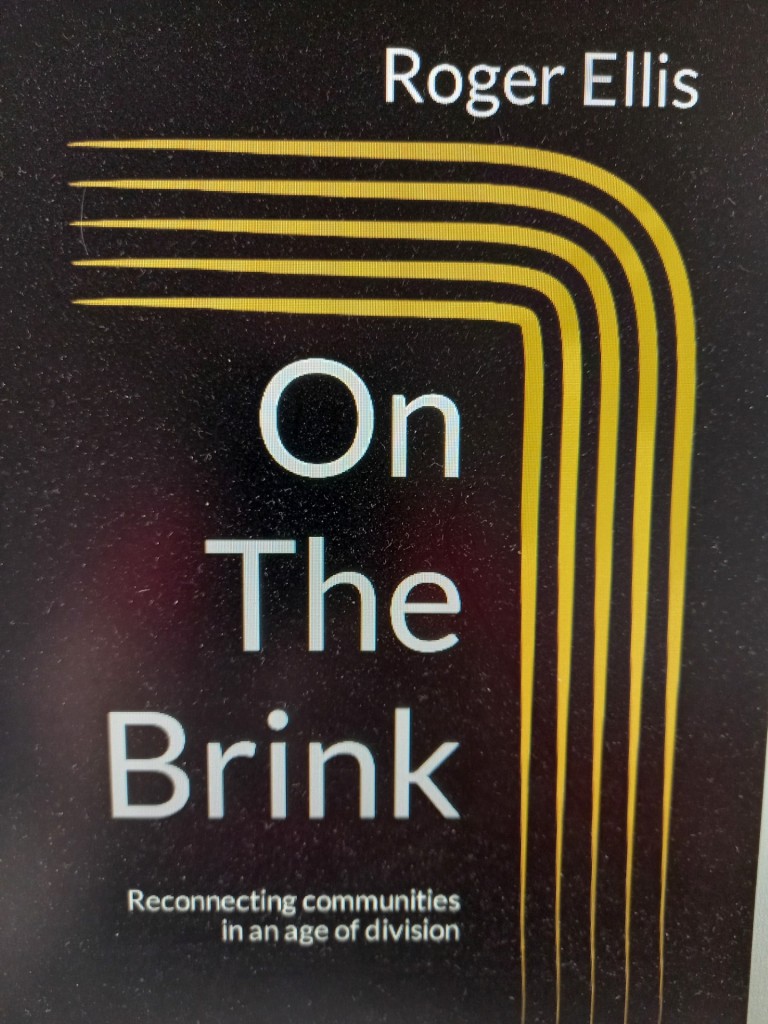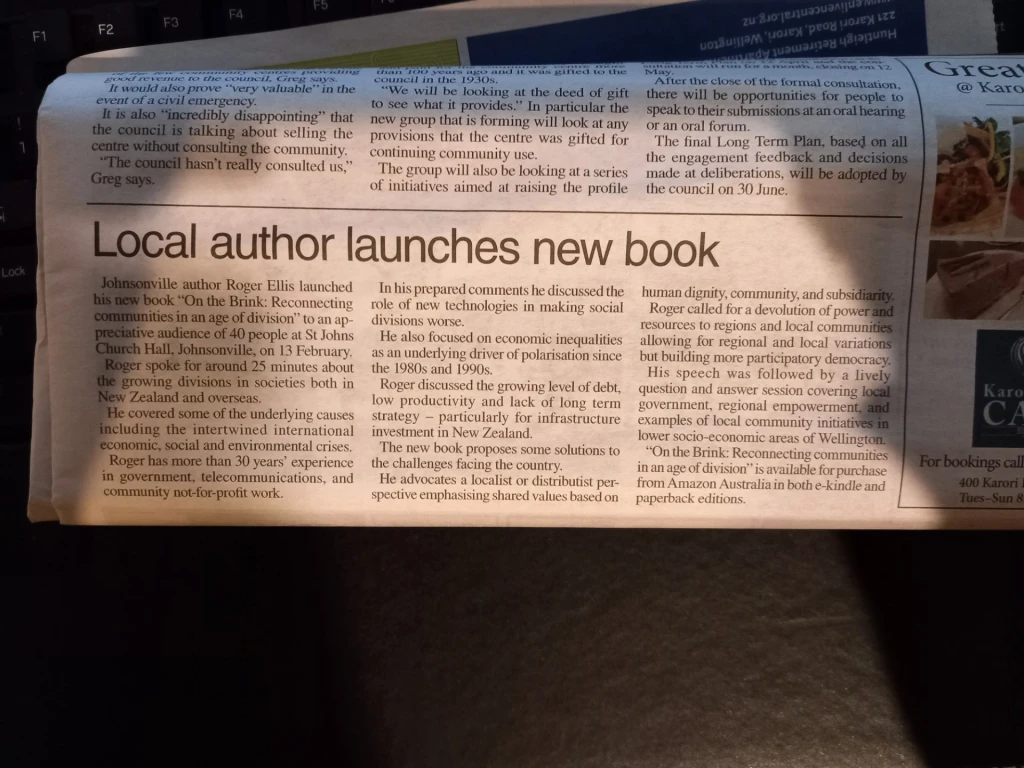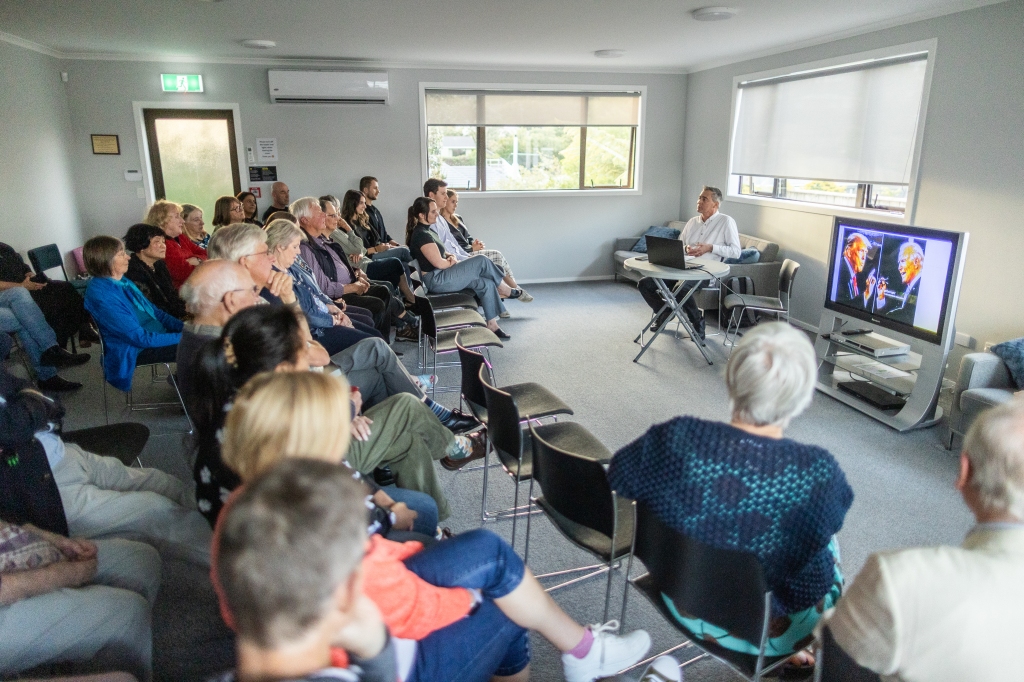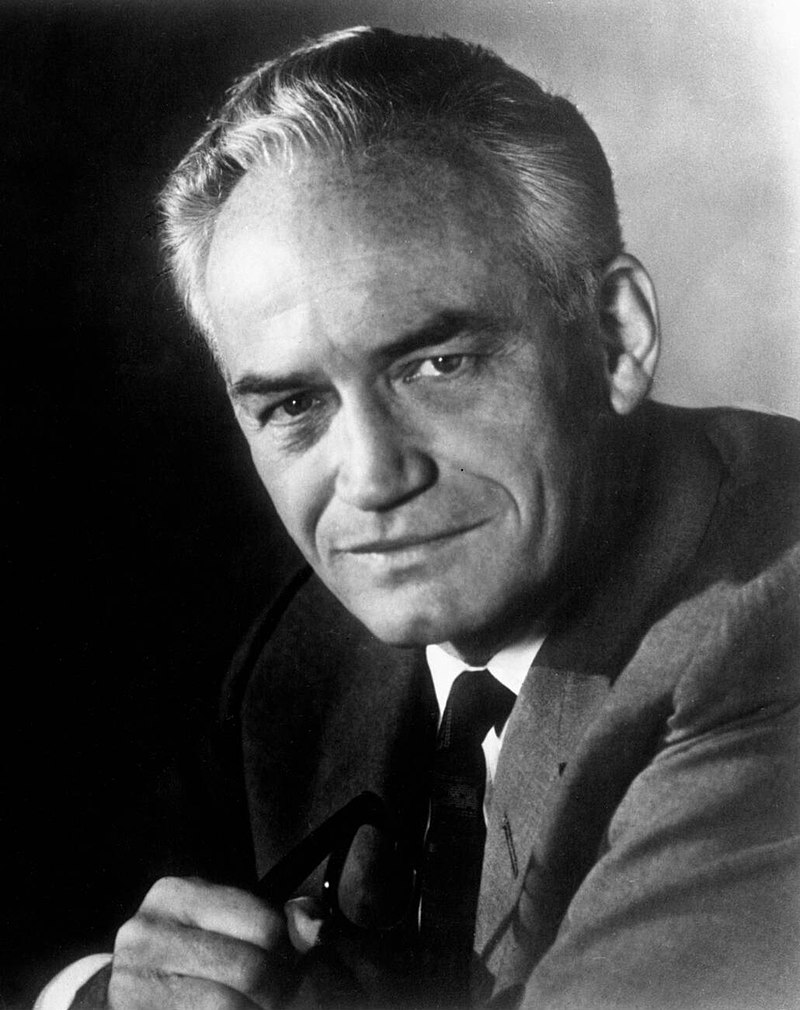Media statement
Tuesday, February 13th, 2024
New book calls for new approach to overcome divisions.
Tonight, a new book will be launched by Wellington author, Roger Ellis.
“This book, “On the Brink”, discusses creating conditions to foster the reconnecting of communities in an age of division. Over the last three decades we have witnessed a growing centralisation of economic and political power, the erosion of communities, and growing polarisation. The book identifies the underlying causes and suggests some solutions to help local and regional communities regain their place in decision-making and participation in a renewal of flax roots democracy,” said Roger Ellis.
“We need to give power back to local communities and regions so that people can make decisions over matters that directly impact them. That means rediscovering shared values that have worked for us in the past – such as respect for human dignity, a sense of community, seeking the common good, and subsidiarity.” said Mr Ellis.
The book covers a wide range of issues including the intertwined economic, social and environmental crises, technological advances, and offers some solutions aimed at empowering individuals, families, local communities and regions.
The book is available through Amazon bookstores in Paperback (from tomorrow) and kindle e-book (from today) editions and can be ordered from https://www.amazon.com.au at https://www.amazon.com.au/dp/B0CV5W4VLV
The book launch is at 7.30pm tonight, at St Johns Church Hall, 18 Bassett Road, Johnsonville, Wellington.
ENDS
For further information
Roger Ellis
rogerellis@outlook.com +64 21 526 264
www.concisecomment.wordpress.com
Information about the Author:
Roger Ellis has 30 years professional experience in New Zealand government, business and community sectors having held a wide variety of management and governance roles in addition to community leadership positions. The book is based on reflections of the author’s discussions with a wide range of New Zealand and international leaders from business, government, indigenous and community groups.








